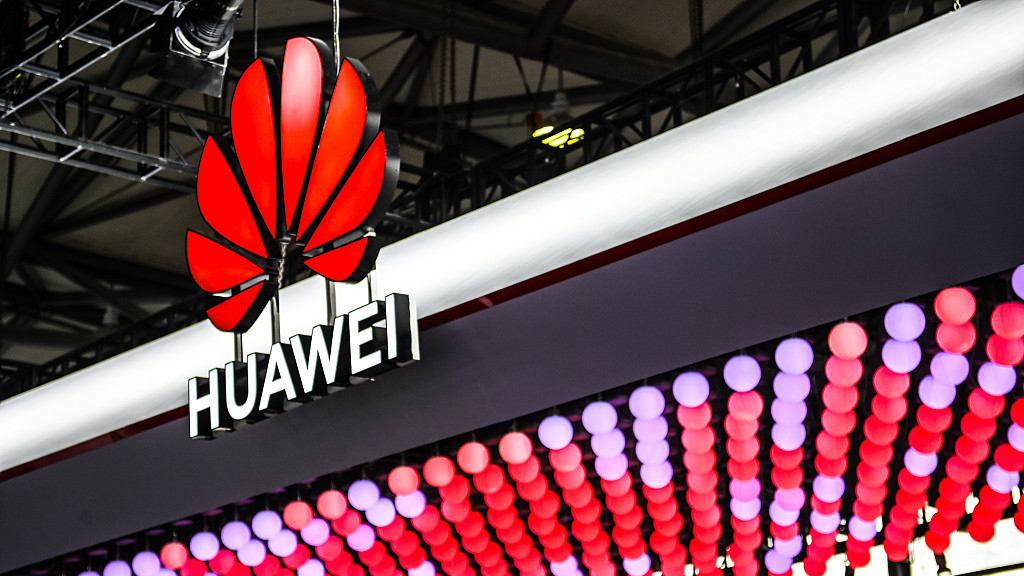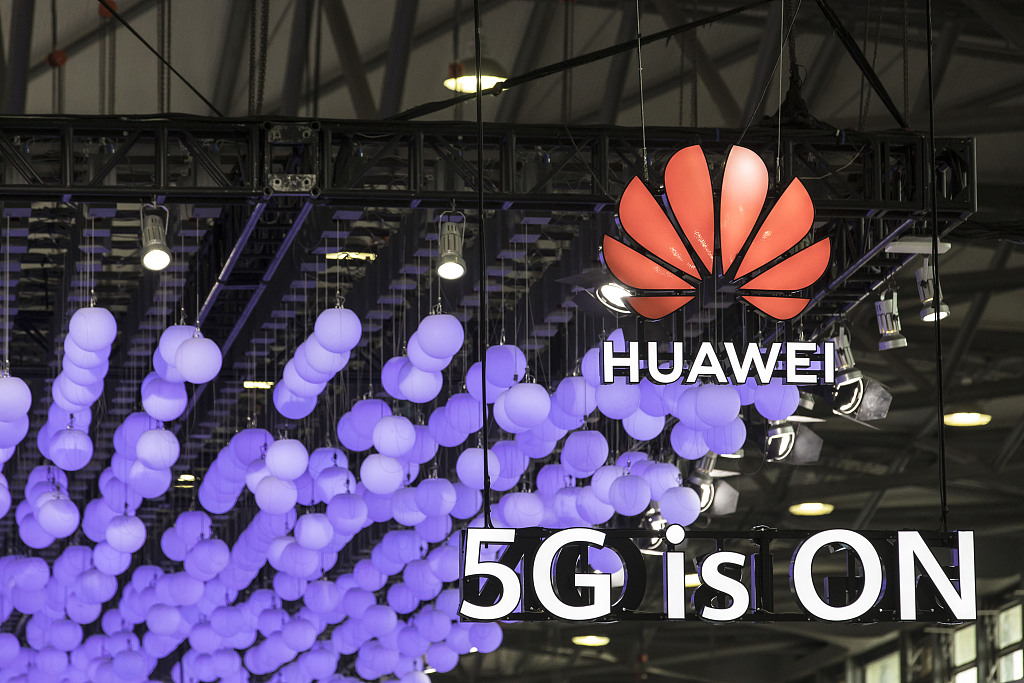

Editor's note: Li Zheng is an associate research fellow at the China Institutes of Contemporary International Relations, Institute of American Studies and the director of the American Security Center, Institute of American Studies. The article reflects the author's opinion and not necessarily the views of CGTN.
On July 30, Chinese technology giant Huawei released its first semi-annual report. Huawei's performance in the past six months has received much attention. As the U.S. government had put Huawei on the list of export control entities in May 2019, it was widely believed that Huawei's performance might be lower than originally expected.
However, Huawei's outlook is far from pessimistic. In the first half of 2019, Huawei realized 401.3 billion yuan (about 58.3 billion U.S. dollars) in sales revenue, a year-on-year increase of 23.2 percent. Liang Hua, chairman of Huawei, said the company's main products are basically not affected by U.S. export controls and that customers still believe in Huawei.
For the vast number of Huawei users and the Chinese people, Huawei's resilience has withstood the test. The alternative plans previously disclosed by Huawei have already worked.

Liang Hua, chairman of Huawei. /VCG Photo
The anti-China powers in the U.S. might be disappointed, as Huawei did not quickly fall against their expectations. In the eyes of some American conservatives, Huawei is at the forefront of U.S. confrontation with China and is the representative of China's comprehensive strength. These people are confident that their ban will quickly weaken Huawei, just as the tough policy against China will cause China to collapse immediately.
However, the rush to achieve success is the biggest shortcoming of the U.S. policy toward Huawei. For Huawei, patience is clearly the virtue, as it is making steady progress with its technology and products, and riding the technology trends wave.
It is widely acknowledged that 5G is becoming an unstoppable technology trend. As a communications equipment supplier, Huawei regards 5G as the core technology of the next communications revolution in the world and has invested a large amount of money in its development and application.
Today, Huawei is a global leader in 5G commercialization. It has acquired 50 commercial contracts and shipped more than 150,000 base stations. It also recently released its first 5G mobile phone, and its price and performance have also exceeded expectations. This proves that the U.S. blockade does not change the fact that 5G is developing rapidly around the world. Countries that are still hesitant about the feasibility of this technology are likely to lose this valuable strategic opportunity.

Signage displayed at the Huawei Technologies Co. booth at the MWC Shanghai exhibition in Shanghai, China, June 27, 2019. /VCG Photo
The second trend is that global consumers still choose terminal devices based on rationality and performance. As the global mobile phone consumer market has become saturated, the competition among mobile phone manufacturers is becoming more fierce. Once the progress of some manufacturers slows down, it is likely to be abandoned by consumers.
A recent market research report shows that the transfer of Apple mobile phone users to Huawei is accelerating, and this situation has gradually occurred in the high-end user market where Apple originally had a strong advantage. This change is not unexpected. In mobile phone performance, Huawei is significantly ahead of Apple in some practical functions, and Apple's innovation speed seems to be slowing down.
The last trend is that cooperation is still a necessary foundation for the development of the technology industry. Although the U.S. government issues its export embargo, Huawei did not change its attitude toward its U.S. partners and is still trying to maintain the cooperative relationship between the two sides.
Huawei's goodwill has made American companies an important driving force for lifting the embargo on Huawei. It also makes the international community think that Huawei is a reliable long-term partner. In contrast, some U.S. communications equipment manufacturers have adopted the opposite attitude toward their Chinese partners and cater to government demands. These practices violate the laws of the market and will inevitably damage their credibility overseas.
(If you want to contribute and have specific expertise, please contact us at opinions@cgtn.com)

Copyright © 2018 CGTN. Beijing ICP prepared NO.16065310-3
Copyright © 2018 CGTN. Beijing ICP prepared NO.16065310-3